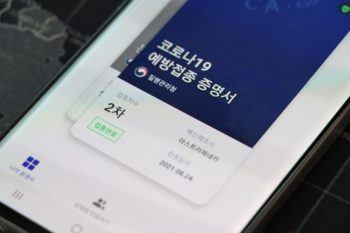Old and New Culture in Modern Korean Society (Part 5) Posted by Flying Oyster on Feb 23, 2022 in Culture, Idioms, Korean Language, Pronunciation, Vocabulary
바야흐로 (bah-ya-hue-ro: at the height of, in full swing), we have reached the last post of Old and New Cultures in Modern Korean Society (Part 5). I have been observing changes in Korean culture for a while and collecting ideas to share my personal opinions on it.
Today, I would like to talk about some of the distinctive elements of Korean life, such as technology in daily life and the unique house payment system.
- IT 강대국 (kang-dae-guk: a powerful nation) 대한민국 (Dae-han-min-guk: Republic of Korea)
As a native Korean, who has been observing Korean digital culture from far away, I often feel that I may be left out of the center of fast-changing technology evolution, particularly in communication technology. I am an average person who uses technology in my daily life without major issues, but I sometimes feel it is overwhelming to try to catch up with the speed of technology progression.
If I was living in Korea, my mental exhaustion in technology might be more intense only because there are many technological options to enhance the quality of life. Advanced technology is deeply immersed in modern Korean life from 근무 (geun-moo: work), 가사 (gah-sah: housekeeping), 육아 (yook-ah: childcare), 교육 (gyo-yook: education), 의료 (eui-ryo: medical care), 통신 (tong-shin: communication), 교통 (gyo-tong: trandsporation) to 물류 (mool-ryo: logistics) – the list seems endless! Every time I hear about new technology trends from Korea, my jaw just drops.
If we use technology for the right purpose, the benefits from it are tremendous. Please consider, for example, how technological advances have benefitted Koreans by controlling the spread of COVID-19.
When COVID-19 had just broken out, the Korean government immediately created a variety of practical apps that facilitate the Korean citizens’ safety. For instance, if there are any COVID positive test results in your neighborhood, you would get a notice on your phone. The notice, of course, won’t tell you the personal information of 확진자 (hwak-jin-ja: the confirmed case). It is simply designed to alert you and your family to be more cautious in your environment.
Communication technology in Korea has been readily accessible. It facilitates establishing systematic social distancing regulations, self-covid testing and other preventative measures still in use today. At the beginning of the pandemic, when nobody seemed to know what to do against the virus, this kind of system definitely helped ameliorate public confusion.
The Korean government got praised by many countries because they did an excellent job preventing the virus from spreading throughout the nation and in keeping the case numbers as low as they could under the circumstances. The Korean government and the local health departments were proactively promoting the citizen’s participation during the pandemic using technology apps. This was the perfect tool for Koreans, who are already accustomed to utilizing technology in daily life.
2. 전세제도 (jeon-sae-jae-doh: lease a house or a room on a deposit basis)
There are mainly three ways to have a home in Korea; 월세 (wol-sae: monthly rent), 전세 (jeon-sae: lease a house on a deposit basis) and 매매 (mae-mae: deal in, buy and sell).
You can buy or rent a house, that is a 매매 system. If you choose 월세 (wol-sea: monthly rent) payment, you need to pay a relatively small amount of 보증금 (boh-jeung-geum: security deposit, key money) with monthly rent every month.
With a 전세 system, you can lease a house paying a big portion of the house price as 전세 보증금 (jeon-sae-boh-jeung-geum: deposit money for leasing a house). You can take 전세 보증금 back when the contract ends. If you choose 전세 payment system, you don’t need to pay monthly/yearly rent.
What did you think about the Korean housing payment system? I believe 전세 is a unique concept that Koreans deal with when they lease a house.
I hope you enjoy learning about aspects of Korean culture. I have been sharing this series of posts for the last couple of months. If you haven’t had a chance to look at them yet, I strongly recommend you read them. I would love to know what you think, and I will look forward to hearing from you soon.

Build vocabulary, practice pronunciation, and more with Transparent Language Online. Available anytime, anywhere, on any device.








